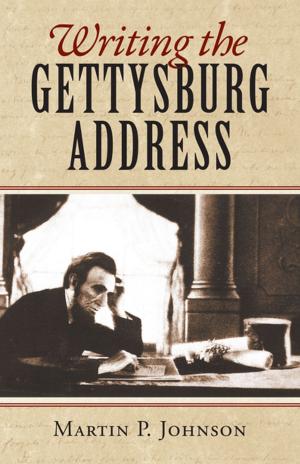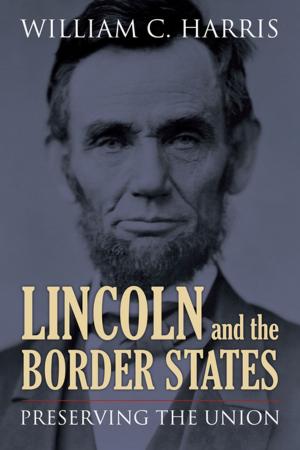The Search for Domestic Bliss
Marriage and Family Counseling in 20th-Century America
Nonfiction, Health & Well Being, Psychology, Family Therapy, Social & Cultural Studies, Social Science, Sociology, History| Author: | Ian Dowbiggin | ISBN: | 9780700620326 |
| Publisher: | University Press of Kansas | Publication: | August 15, 2014 |
| Imprint: | University Press of Kansas | Language: | English |
| Author: | Ian Dowbiggin |
| ISBN: | 9780700620326 |
| Publisher: | University Press of Kansas |
| Publication: | August 15, 2014 |
| Imprint: | University Press of Kansas |
| Language: | English |
Why are Americans so bad at marriage? It's certainly not for lack of trying. By the early 21st century Americans were spending billions on marriage and family counseling, seeking advice and guidance from some 50,000 experts. And yet, the divorce rate suggests that all of this therapeutic intervention isn't making couples happier or marriages more durable. Quite the contrary, Ian Dowbiggin tells us in this thought-provoking book: the "caring industry" is part of the problem.
Under the influence of therapeutic reformers, marital and familial dynamics in this country have shifted from mores and commitment to love and companionship. This movement toward a "me marriage," as the New York Times has termed it, with its attendant soaring expectations and acute dissatisfactions, is rooted as much in the twists and turns of 20th-century history as it is in the realities in the hearts and minds of modern Americans, Dowbiggin argues; and his book reveals how effectively those changes have been encouraged and orchestrated by a small but resourceful group of social reformers with ties to eugenics, birth control, population control, and sex education.
In The Search for Domestic Bliss, Dowbiggin delves into the stories of the usual suspects in the founding of the therapeutic gospel, exposing little known aspects of their influence and misunderstood features of their work. Here we learn, for instance, that Betty Friedan did not after all discover "the problem that knows no name"—the widespread unhappiness of women in mid-century America; and that, like Friedan, one of the pioneers of marriage counseling was an open admirer of Stalin's Russia. The book also explores the long overlooked impact of sex researchers Alfred Kinsey and Masters and Johnson on the development of marriage and family counseling; and considers the under-appreciated contributions to the marriage counseling movement of social reformer and activist Emily Mudd.
Through these and other reform-minded Americans, Dowbiggin traces the concerted and deliberate way in which the old order of looking to family and community for guidance gave way to seeking guidance from marriage and family counseling professionals. Such a transformation, as this book makes clear, has been a key part of a major revolution in the way Americans think about their inner selves and their relations with friends, family, and community members—a revolution in which once deeply private concerns have been redefined as grave matters of public mental health.
Why are Americans so bad at marriage? It's certainly not for lack of trying. By the early 21st century Americans were spending billions on marriage and family counseling, seeking advice and guidance from some 50,000 experts. And yet, the divorce rate suggests that all of this therapeutic intervention isn't making couples happier or marriages more durable. Quite the contrary, Ian Dowbiggin tells us in this thought-provoking book: the "caring industry" is part of the problem.
Under the influence of therapeutic reformers, marital and familial dynamics in this country have shifted from mores and commitment to love and companionship. This movement toward a "me marriage," as the New York Times has termed it, with its attendant soaring expectations and acute dissatisfactions, is rooted as much in the twists and turns of 20th-century history as it is in the realities in the hearts and minds of modern Americans, Dowbiggin argues; and his book reveals how effectively those changes have been encouraged and orchestrated by a small but resourceful group of social reformers with ties to eugenics, birth control, population control, and sex education.
In The Search for Domestic Bliss, Dowbiggin delves into the stories of the usual suspects in the founding of the therapeutic gospel, exposing little known aspects of their influence and misunderstood features of their work. Here we learn, for instance, that Betty Friedan did not after all discover "the problem that knows no name"—the widespread unhappiness of women in mid-century America; and that, like Friedan, one of the pioneers of marriage counseling was an open admirer of Stalin's Russia. The book also explores the long overlooked impact of sex researchers Alfred Kinsey and Masters and Johnson on the development of marriage and family counseling; and considers the under-appreciated contributions to the marriage counseling movement of social reformer and activist Emily Mudd.
Through these and other reform-minded Americans, Dowbiggin traces the concerted and deliberate way in which the old order of looking to family and community for guidance gave way to seeking guidance from marriage and family counseling professionals. Such a transformation, as this book makes clear, has been a key part of a major revolution in the way Americans think about their inner selves and their relations with friends, family, and community members—a revolution in which once deeply private concerns have been redefined as grave matters of public mental health.















